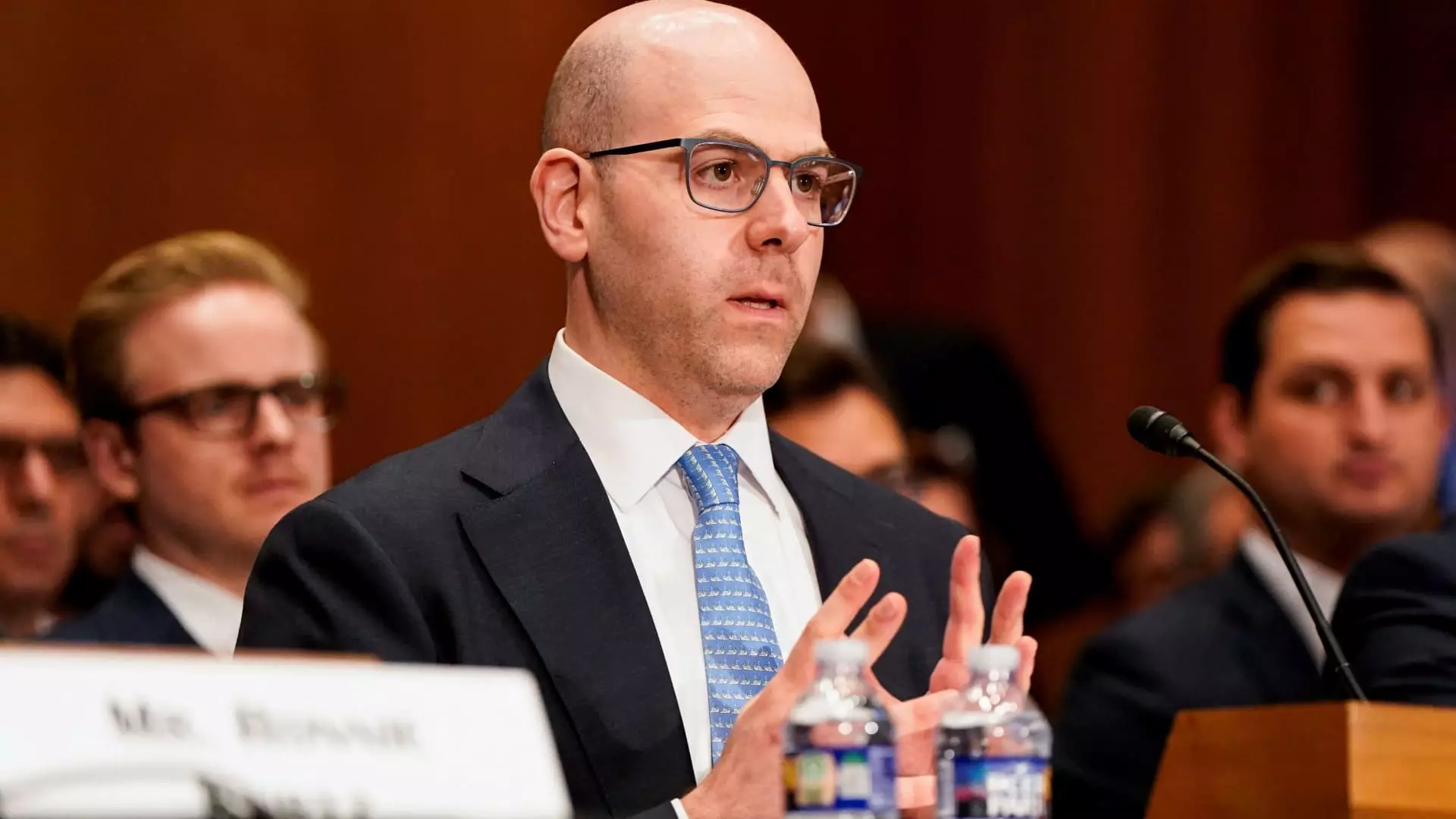The narrative of the Federal Reserve as an autonomous, apolitical institution is under increasing scrutiny. Recent statements by Federal Reserve Governor Stephen Miran reveal a stark contrast between the idealized image and the complex reality of monetary policymaking. Miran’s assertion that he faced no pressure from President Trump regarding his voting decision lends superficial reassurance, yet it also masks the broader context of an institution under political influence. The fact that Trump publicly and aggressively pressured the Fed to lower rates—calling Chair Jerome Powell “Too Late”—corrodes the trust placed in the Fed’s independence. Miran’s vote against the consensus on rate cuts demonstrates individual resolve, but it does not negate the underlying political currents swirling around the central bank.
It is naive to perceive the Fed as immune from political interference, especially during a politically charged era. Miran’s comments about his decision being “independent” seem more like a deflection than a definitive safeguard. The true concern lies in the persistent external influence exerted by a president eager to manipulate monetary policy for short-term political gains. This pressure, subtle or overt, risks politicizing the core mechanism that stabilizes the economy and undermines the central bank’s credibility. The Fed’s independence should be a bulwark against populism and political meddling; instead, current events suggest it remains vulnerable, and that creates a dangerous precedent for future policy decisions.
Power Dynamics and Political Leverage
Trump’s direct confrontations with the Fed—publicly criticizing Powell, seeking to influence rate decisions, and orchestrating personnel changes—highlight a fundamental shift in the relationship between politics and monetary policy. Historically, central banks maintained a degree of discretion, communicating through intricate channels rather than overt public pressures. The Trump era, however, has seen a departure from this norm, turning the Fed into a pawn in broader political objectives.
Miran’s reluctance to confirm whether the president’s influence extends into his own decisions underscores a troubling ambiguity. On one hand, he claims to be independent, but his statements about his term limit and his praised collegial environment during his introduction to the FOMC suggest an undercurrent of political appeasement. The idea that a governor would only serve until his term ends, and not beyond, appears as a strategic distancing from potential political repercussions. Yet, in reality, such dynamics threaten the integrity of the Fed’s decisions, which should be solely rooted in economic analysis and data, not political persuasion.
The ongoing battles over Fed leadership—such as Trump’s interest in replacing Governor Lisa Cook—further exemplify the overt political strategy to control the institution’s direction. These moves signal an attempt to install policymakers sympathetic to slashing interest rates and easing monetary conditions, regardless of the broader economy’s health. Such actions risk long-term damage: eroding public confidence, blurring the line between independent economic stewardship and political expediency, and ultimately destabilizing financial markets.
Implications for Economic Stability and Future Policy
The core issue lies in the potential erosion of monetary policy credibility. Central banks globally derive their power from credibility, which is rooted in their independence and rule-based frameworks. When political actors disrupt this balance—by delegitimizing the Fed or pressuring its members—the repercussions can be severe: inflation, asset bubbles, or sudden market shocks.
Miran’s upcoming address to the Economic Club of New York may serve as a pivotal moment for clarifying his stance and reasserting the importance of independence. Yet, the underlying tension remains unresolved. If political influence continues unchecked, the Fed risks becoming a tool for short-term political objectives rather than a guardian of long-term economic stability.
In a broader sense, this scenario underscores the necessity for structural reforms that reinforce the Fed’s independence and insulate it from political meddling. The ideal of a central bank that functions free of external pressure can only be preserved through clear legal protections and institutional norms that deter politicization. Otherwise, the United States risks a future where monetary policy is driven more by political expediency than by sound economics—jeopardizing future generations’ prosperity.
By critically examining the current state of the Federal Reserve, it becomes evident that safeguarding its independence is of paramount importance. Failure to do so would compromise not only US economic stability but also its global financial standing—an outcome that demands urgent attention from policymakers committed to center-right principles of responsible governance and economic stewardship.

